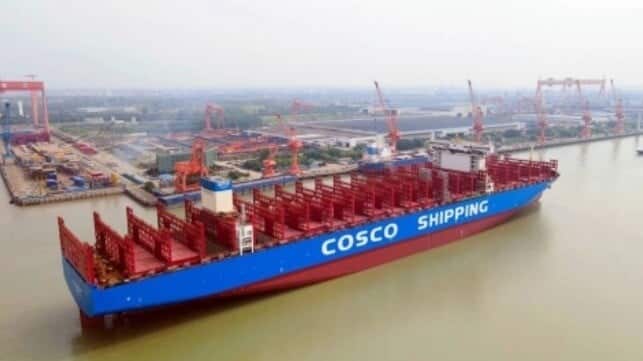China Pushes Back on U.S. Port Fee Proposal
China Slams U.S. Port Fee Proposal Amid Trade Tensions

China is vehemently opposing the Biden administration’s recent proposal to impose port fees on Chinese vessels, which could significantly increase operational costs for shipping companies. The proposed fees could reach as high as $140 per net ton for ships calling at U.S. ports, prompting concerns from Chinese officials about the potential impact on global trade and supply chains. China’s commerce ministry has labeled the measures as unilateral and protectionist, asserting that they violate international trade rules.
China’s Strong Response to U.S. Measures
In a statement released on Friday, China’s commerce ministry criticized the U.S. proposal, claiming it undermines the rights of Chinese companies and disrupts the stability of global supply chains. The ministry emphasized that such actions are detrimental to the rules-based multilateral trading system and violate World Trade Organization (WTO) regulations. The China Shipowners’ Association (CSA) echoed these sentiments, calling for an end to what they describe as discriminatory measures and rejecting accusations of unfair competition from the U.S. Trade Representative (USTR).
The proposed fee structure primarily targets Chinese shipbuilders, imposing charges on any vessel built in China. Even if a ship is not owned by Chinese interests, laden Chinese-built vessels would incur a fee of $50 per net ton or $120 per import container discharged, depending on the higher value. While these fees are lower than previous proposals, they still raise concerns within the shipping industry. The China Association of National Shipbuilding Industry (CANSI) condemned the USTR’s proposal, labeling it a violation of trade rules and a threat to the international shipping sector.
Impact on Global Shipping and U.S. Exporters
The proposed fees extend beyond Chinese vessels, affecting car carriers built outside the U.S., including those from China, Korea, Japan, and Europe. These carriers would face a flat charge of $150 per car equivalent unit, even when arriving empty. For large car carriers docking at East Coast ports, this could translate to over $1 million in additional fees per visit. This situation poses challenges for American exporters of roll-on/roll-off cargo, including major companies like John Deere, Caterpillar, GM, Toyota, and Mercedes, which rely on shipping vehicles from U.S. factories to international markets.
